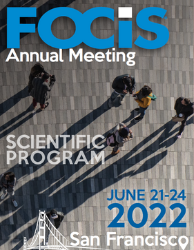Multi-omic Profiling in Celiac Disease Reveals Somatic Driver Mutations in Rogue T cell Clones
- MS
Mandeep Singh, PhD
Garvan Institute of Medical Research
Sydney, New South Wales, Australia 
Irini Sereti, MD
Senior Investigator- Section Chief
National Institute of Allergy and Infectious Diseases
Bethesda, Maryland, United States
Presenting Author(s)
Chair(s)
It has long been proposed that the pathogenesis of human autoimmune diseases may share common origins with lymphoid cancer. However, a major hurdle in understanding the immune pathogenesis of autoimmune diseases is distinguishing self-reactive “rogue” lymphocytes from normal immune cells required for host defence. In Celiac disease, both the environmental trigger (gluten) and major autoantigen (transglutaminase 2) are well characterised, but the underlying mechanisms by which rogue lymphocytes initiate and drive disease are unknown.
Here, we apply multi-omic technologies that enable detailed DNA, RNA and protein measurements at the single-cell level to profile tens of thousands of immune cells isolated from small intestine duodenum biopsies from individuals with Celiac disease. We utilise the T-cell receptor as a natural barcode across multiple single-cell experiments to identify expanded rogue T cell clones and their gene and cell-surface protein expression profiles, along with any somatic DNA driver mutations. Strikingly, we identify in multiple patients expanded T cell clones with mRNA and cell-surface protein expression profiles of cytotoxic effector cells, that harboured missense somatic mutations in T cell lymphoma driver genes STAT3, STAT5B and DDX3X. These mutations have been described as strong gain-of-function mutations in multiple T cell lymphomas, highlighting a novel mechanism by which T cell clones escape immune tolerance and adopt a rogue phenotype in Celiac disease.
Overall, our results highlight the power of single-cell multi-omics in identifying and characterising rare pathogenic clones in a common human autoimmune disease and provide direct evidence for a shared pathogenesis of autoimmunity and lymphoid malignancy.

